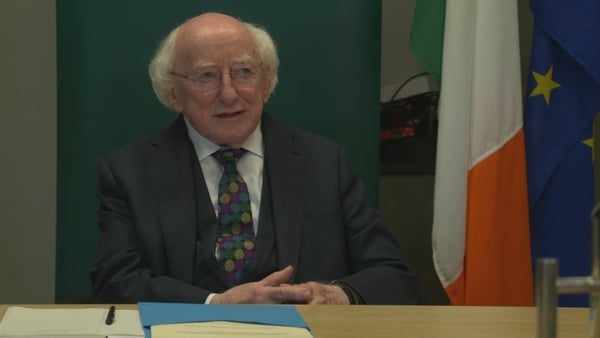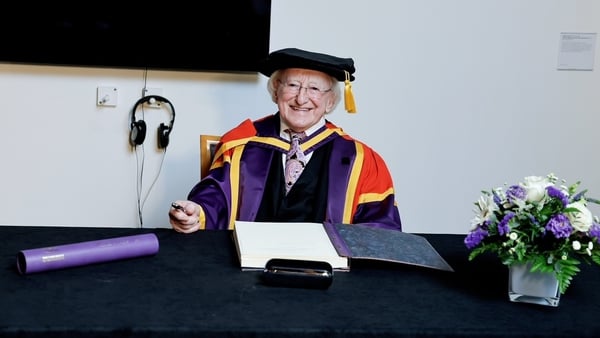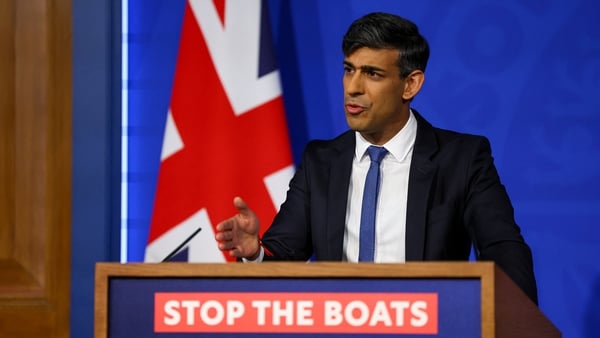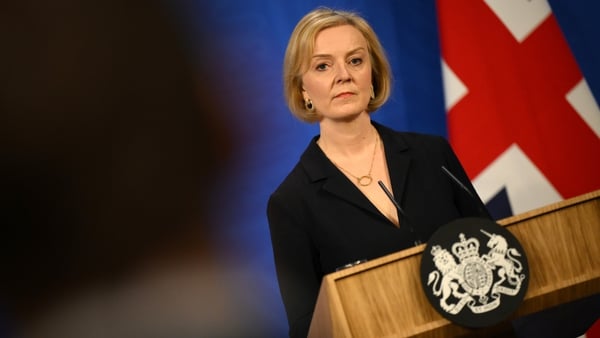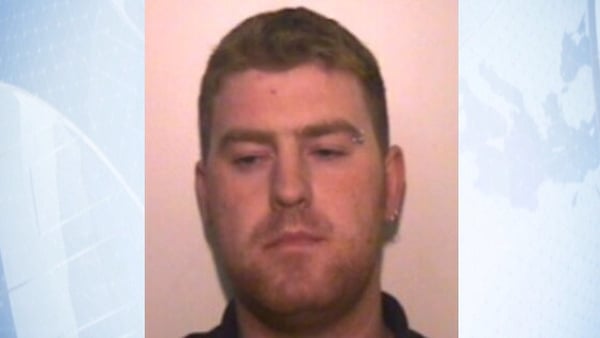When the dust settles on the restoration of the Northern Ireland Executive there may be some questions over the deal that got it done.
It has become clear that the consent of the EU was not sought when the British government hammered out a deal with the DUP.
When details were published last Wednesday, the EU Commission said it would "carefully analyse" its measures.
But it is also clear - at least to the DUP MPs who support the deal - that it unilaterally rewrites post-Brexit trading agreements with the EU.
The British government itself played down this idea saying the deal involved "operational" changes to the Windsor Agreement without altering its "fundamentals".
Well, that is not how DUP leader Jeffrey Donaldson saw it.
During the debate in the House of Commons he pointed out to critics of the deal, like Sammy Wilson, that they had voted for Liz Truss' Northern Ireland Protocol Bill.
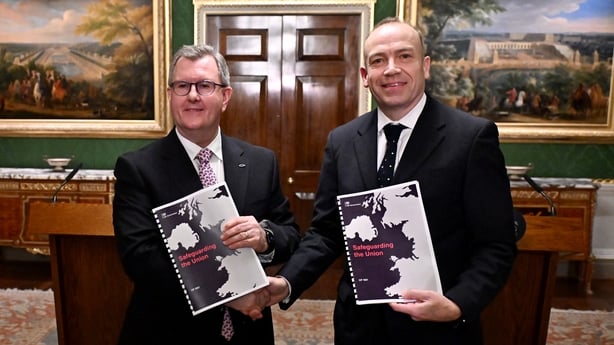
This sought to introduce a Green Lane for goods coming into Northern Ireland from Great Britain and a Red Lane for goods destined for the EU.
Mr Donaldson pointed out that this latest deal goes further than that by abolishing the Green Lane altogether for goods coming to Northern Ireland.
The British government ditched the old Protocol bill after Boris Johnson left office largely because of criticism that it amounted to a unilateral rewriting of the Northern Ireland Protocol.
At the time, the European Commission's vice-president in charge of Brexit, Maroš Šefčovič said "unilateral actions contradicting an international agreement are not acceptable".
But there was unlikely to be any criticism of the British government's current actions while it was trying to restore government in Northern Ireland.
In fact, the European Commission stated last Wednesday that it recognised "the high importance of seeing the Northern Ireland Executive restored and delivering for the people of Northern Ireland".
Taoiseach Leo Varadkar also said he did not see any "red flags" in the deal, but he did say the EU would have questions.
The language in the deal document - entitled 'Safeguarding the Union’ - was unapologetically strident in its assertion that the UK's internal market comes first for Northern Ireland.
It also - in one stroke of a pen - announced that it is revoking part of the original Withdrawal Agreement in which a previous British government made a legal obligation to protect Ireland's 'all-island economy'.
Read more:
Post-Brexit checks on goods between NI and Britain set to end
Latest Brexit headlines
The present British government now promises to repeal the relevant legislation and added that "this will mean a full and complete repeal of all statutory duties relating to the 'all-island economy' ".
The document states that this legal duty towards an all-island economy is "unacceptable" and distracts from the British government's priority which is "to protect Northern Ireland's place in the UK internal market".
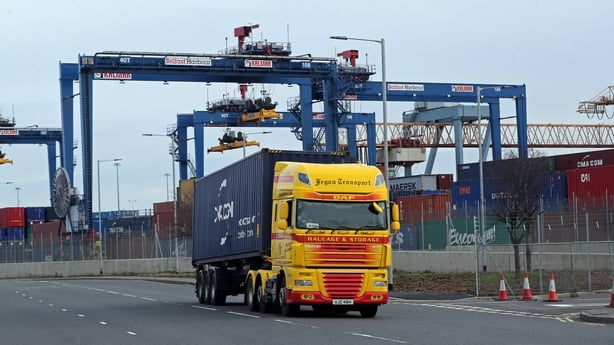
The document goes on to describe the "so-called" all-island economy as a "divisive and misguided political notion".
It is not the kind of language the Irish government has come to expect from its British counterparts since Rishi Sunak took up office.
Then there is the issue of preferential arrangements for Northern Ireland hauliers.
As Mr Donaldson proudly proclaimed in the House of Commons, the deal gives Northern Ireland exporters unfettered access to Great Britain and this includes through ports in the Republic.
As there is no hard border in Ireland, and because Northern Ireland transporters have no customs checks entering Britain, they can go straight through Dublin and Holyhead.
However, because Britain has finally introduced post-Brexit customs checks, hauliers from the Republic face delays.
It is accepted that this would have the potential to distort trade.
While there are mechanisms to address distortions, these require the expenditure of political resources and are not always successful.
For instance, cross-border smuggling used to involve a serious loss of government revenue, but it was never really tackled.
It remains to be seen what happens on the ground regarding this aspect of the deal.
The SDLP's Colum Eastwood was a lone voice in the House of Commons when he expressed concern about the deal from an Irish nationalist perspective.
"For me, the Command Paper undermines the Good Friday agreement, undermines north-south, and goes far too far in the direction of the DUP’s thinking," he said.
On the face of it the DUP deal shows the British government developing a more pro-unionist position.
It is only a couple of years since Ulster Unionists felt their interests were going to be jettisoned as part of Boris Johnson’s aim to ‘get Brexit done’ with the EU.
Now they are back in the driving seat and the question is whether the British government was pushed into a harder pro-unionist line and to risk a dispute with the EU - or whether it jumped at the chance.
It's up to the EU now to decide if it finds the latest changes to the Northern Ireland Protocol acceptable.


